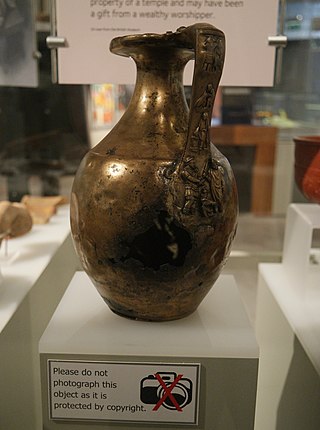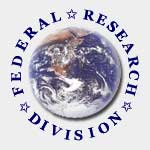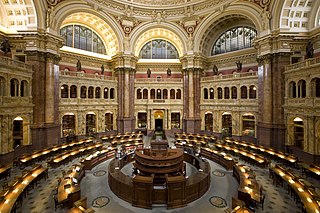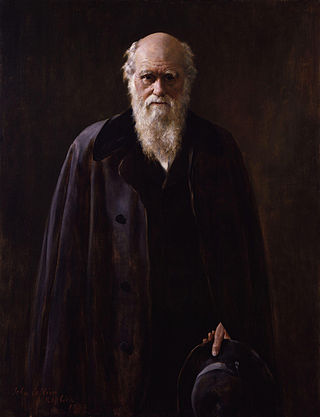
A copyright is a type of intellectual property that gives its owner the exclusive legal right to copy, distribute, adapt, display, and perform a creative work, usually for a limited time. The creative work may be in a literary, artistic, educational, or musical form. Copyright is intended to protect the original expression of an idea in the form of a creative work, but not the idea itself. A copyright is subject to limitations based on public interest considerations, such as the fair use doctrine in the United States and fair dealings doctrine in the United Kingdom.

The National Archives and Records Administration (NARA) is an independent agency of the United States government within the executive branch, charged with the preservation and documentation of government and historical records. It is also tasked with increasing public access to those documents that make up the National Archives. NARA is officially responsible for maintaining and publishing the legally authentic and authoritative copies of acts of Congress, presidential directives, and federal regulations. NARA also transmits votes of the Electoral College to Congress. It also examines Electoral College and constitutional amendment ratification documents for prima facie legal sufficiency and an authenticating signature.

The Internet Archive is an American non-profit organization founded in 1996 by Brewster Kahle that runs a digital library website, archive.org. It provides free access to collections of digitized media including websites, software applications, music, audiovisual, and print materials. The Archive also advocates a free and open Internet. Its mission is committing to provide "universal access to all knowledge".

The United States Copyright Office (USCO), a part of the Library of Congress, is a United States government body that registers copyright claims, records information about copyright ownership, provides information to the public, and assists Congress and other parts of the government on a wide range of copyright issues. It maintains online records of copyright registration and recorded documents within the copyright catalog, which is used by copyright title researchers who are attempting to clear a chain of title for copyrighted works.

The Congressional Research Service (CRS) is a public policy research institute of the United States Congress. Operating within the Library of Congress, it works primarily and directly for members of Congress and their committees and staff on a confidential, nonpartisan basis. CRS is sometimes known as Congress' think tank due to its broad mandate of providing research and analysis on all matters relevant to national policymaking.
A work of the United States government is defined by the United States copyright law, as "a work prepared by an officer or employee of the United States Government as part of that person's official duties". Under section 105 of the Copyright Act of 1976, such works are not entitled to domestic copyright protection under U.S. law and are therefore in the public domain.

A copyfraud is a false copyright claim by an individual or institution with respect to content that is in the public domain. Such claims are unlawful, at least under US and Australian copyright law, because material that is not copyrighted is free for all to use, modify and reproduce. Copyfraud also includes overreaching claims by publishers, museums and others, as where a legitimate copyright owner knowingly, or with constructive knowledge, claims rights beyond what the law allows.

The Federal Research Division (FRD) is the research and analysis unit of the United States Library of Congress.
The Section 108 Study Group was a select committee of copyright experts and library and archives professionals, convened by the Copyright Office and the Library of Congress's National Digital Information Infrastructure and Preservation Program (NDIIPP). The Study Group was charged with updating Section 108 of the United States Copyright Act—relating to libraries and archives' ability to make copies of copyrighted works available under certain circumstances—for the digital age. The Study Group issued a final report in March 2008, outlining proposed changes and updates to Section 108.

Free content, libre content, libre information, or free information is any kind of creative work, such as a work of art, a book, a software program, or any other creative content for which there are very minimal copyright and other legal limitations on usage, modification and distribution. These are works or expressions which can be freely studied, applied, copied and modified by anyone for any purpose including, in some cases, commercial purposes. Free content encompasses all works in the public domain and also those copyrighted works whose licenses honor and uphold the definition of free cultural work.

The public domain (PD) consists of all the creative work to which no exclusive intellectual property rights apply. Those rights may have expired, been forfeited, expressly waived, or may be inapplicable. Because no one holds the exclusive rights, anyone can legally use or reference those works without permission.
The copyright law of the United States grants monopoly protection for "original works of authorship". With the stated purpose to promote art and culture, copyright law assigns a set of exclusive rights to authors: to make and sell copies of their works, to create derivative works, and to perform or display their works publicly. These exclusive rights are subject to a time and generally expire 70 years after the author's death or 95 years after publication. In the United States, works published before January 1, 1929, are in the public domain.

The Library of Congress (LOC) is a research library in the federal national capital city of Washington, D.C., that serves as the library and research service for the two chambers of the United States Congress and the de facto national library of the United States of America. It also administers copyright law through the United States Copyright Office.

In July 2009, lawyers representing the National Portrait Gallery of London (NPG) sent an email letter warning of possible legal action for alleged copyright infringement to Derrick Coetzee, an editor/administrator of the free content multimedia repository Wikimedia Commons, hosted by the Wikimedia Foundation.
United States copyright registrations, renewals, and other catalog entries since 1978 are published online at the United States Copyright Office website. Entries prior to 1978 are not published in the online catalog. Copyright registrations and renewals after 1890 were formerly published in semi-annual softcover catalogs called The Catalog of Copyright Entries (CCE) or Copyright Catalog, or were published in microfiche.

Works are in the public domain if they are not covered by the intellectual property right known as copyright, or if the intellectual property rights to the works have expired. Works automatically enter the public domain when their copyright has expired. The United States Copyright Office is a federal agency tasked with maintaining copyright records.
The Special Immigrant Visa (SIV) programs are programs for receiving a United States visa. The program is administered under the Defense Authorization Act for Fiscal Year 2008, Public Law 110-181, which was signed into law on January 28, 2008.
The copyright status of works produced by the governments of states, territories, and municipalities in the United States varies. Copyright law is federal in the United States. Federal law expressly denies U.S. copyright protection to two types of government works: works of the U.S. federal government itself, and all edicts of any government regardless of level or whether or not foreign. Other than addressing these "edicts of government", U.S. federal law does not address copyrights of U.S. state and local government.

The Research Works Act, 102 H.R. 3699, was a bill that was introduced in the United States House of Representatives at the 112th United States Congress on December 16, 2011, by Representative Darrell Issa (R-CA) and co-sponsored by Carolyn B. Maloney (D-NY). The bill contained provisions to prohibit open-access mandates for federally funded research and effectively revert the United States' National Institutes of Health Public Access Policy, which requires taxpayer-funded research to be freely accessible online. If enacted, it would have also severely restricted the sharing of scientific data. The bill was referred to the House Committee on Oversight and Government Reform, of which Issa is the chair. Similar bills were introduced in 2008 and 2009 but have not been enacted since.

The Legislative Branch Appropriations Act, 2015 is an appropriations bill that would make appropriations for the United States Congress for fiscal year 2015. The bill is considered one of the two easiest appropriations bills to pass each year. The bill would appropriate $3.3 billion to the legislative branch for FY 2015, which is approximately the same amount it received in FY 2014.













